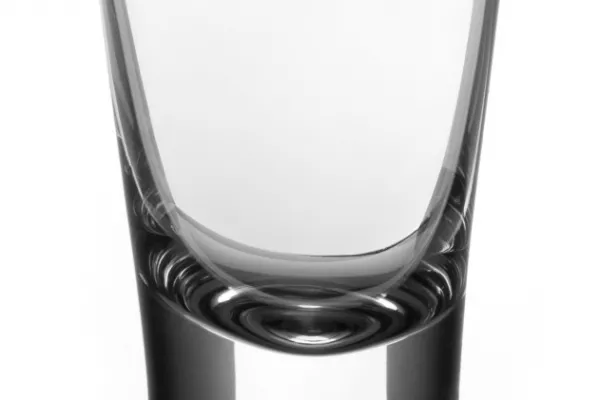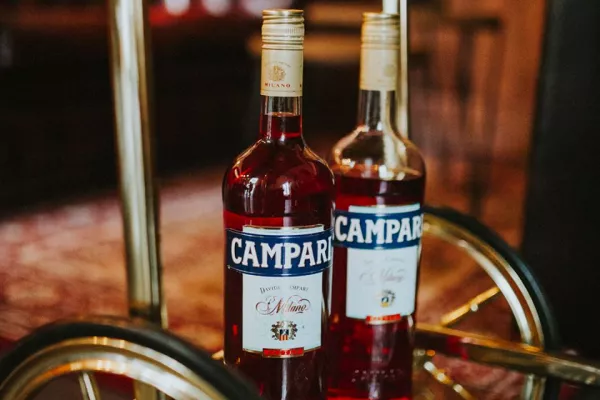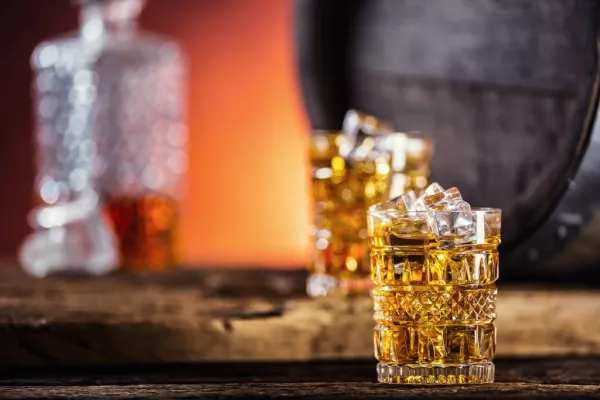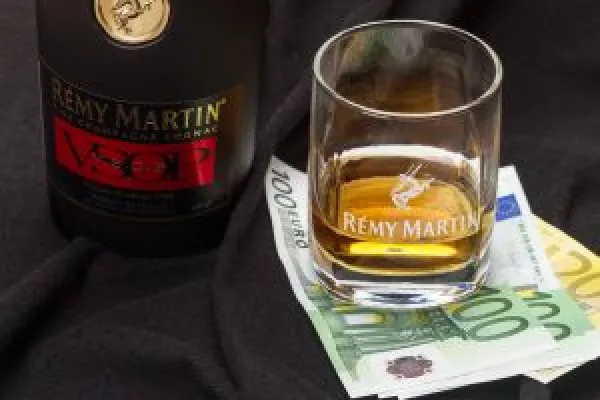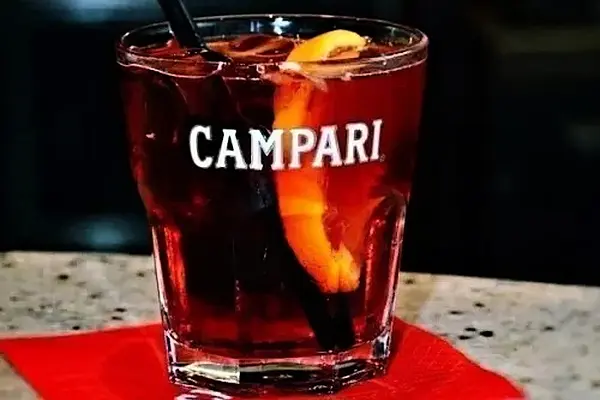Caviar and vodka are the ultimate luxury food-and drink pairing, but putting the sturgeon eggs into the spirit spells disaster. The caviar explodes and whitens the liquid, which eventually smells of rot.
Pernod Ricard SA has just introduced a new vodka in London that aims to deal with the problem - at £175 ($213) per 20-centilitre bottle. The French distiller turned to a patented technology from the skin-care industry, allowing it to safely place caviar coated with an aqueous film into the bottle, infusing it with notes of butter and hazelnut.
It’s the first spirits innovation from a Pernod Ricard skunk works tucked away on a cobblestoned side street in Paris. In a startup-like office where water drips from the ceiling and shelves are lined with manuals on blending cocktails with cannabis, eight researchers are pressing ahead with a Silicon Valley-inspired task: disrupt the future of the alcoholic drinks business.
Pernod Ricard is trying to revive a vodka business that centers on the Absolut brand it acquired from Swedish parent Vin & Sprit in 2008. In recent years Absolut has lost the cult status it commanded in the 1980s, when the brand turned to Andy Warhol to illustrate its advertising and rose to become the best-selling imported vodka in the US. In 2015, as sales slipped to 11 million cases of a dozen 75-centilitre bottles from about 11.5 million cases two years earlier, Pernod Ricard wrote down the value of Absolut.
The new brand, called L’Orbe, reflects the challenges of innovating in an industry where basic production methods have changed little over the years. As sales of mass-market liquor brands slow in developed markets and economic headwinds mount in the emerging world that’s driven growth, Pernod Ricard and other distillers are pursuing “premiumisation,” seeking to sell their drinks at a higher price.
Cognac, Whiskey
Vodka remains the largest spirit in the US, accounting for around $18 billion in annual sales, but darker drinks such as cognac and whiskey are growing faster. Vodka is suffering from what a former executive at Smirnoff owner Diageo Plc in 2014 termed “flavour fatigue.” Smirnoff’s dozens of offshoots have included Fluffed Marshmallow and Pineapple Coconut Sorbet, while Pernod Ricard dabbled in Electricity and Fresh-Cut Grass vodkas under the Oddka label.
“In the US brown spirits have gained market share partly due to perceived greater authenticity, while fruit-based flavoured innovation in vodka seems to have run out of steam,” Trevor Stirling, an analyst at Sanford C. Bernstein, said by phone.
It hasn’t stopped distillers from trying. Last year, Diageo began paying record producer DJ Khaled to promote its Ciroc mango vodka. The company annually wraps its Red, White and Berry Smirnoff bottles in stars-and-stripes packaging in the run-up to US Independence Day celebrations. Campari’s Skyy vodka line counts 17 flavours, including Bartlett Pear and Texas Grapefruit.
Now distillers are seeking more sophisticated innovations. Diageo, Pernod Ricard’s larger competitor, last year turned to a former pharmaceutical chemist to fine-tune the formula for an offshoot of its Johnnie Walker scotch.
Pernod Ricard’s Breakthrough Innovation Group, in a lab across town from the company’s Paris headquarters, previously developed a system for home bartenders that houses spirits in special cartridges linked to a mobile app that measures liquid levels and suggests cocktails to mix. Future projects could rethink glassware or lean on digital innovation, though the company is tight-lipped about its plans.
For its caviar-infused vodka, Pernod Ricard patented a technology developed by Capsum, a cosmetics contractor based on the French Riviera. By 2020, Pernod Ricard aims to sell 100,000 bottles of L’Orbe, made at its Absolut distillery in Sweden and flavoured with sturgeon eggs from French brand Sturia. While that won’t immediately move the needle on the 130 million Absolut bottles sold annually, it’s an important step in proving that the company is embracing new thinking to breathe life into ailing categories, said Alain Dufosse, who leads the Paris innovation team.
‘Niche Space’
“Compared to premium vodka or even the ultra-premium, we are really in a very niche space,” Dufosse said in an interview, declining to comment on the innovation group’s budget. “Vodka is very crowded. It’s becoming extremely competitive, but this is an infusion nobody is able to perform unless they have the technology.”
In L’Orbe, the enrobed caviar sits at the center of the bottle in a narrow column perforated with half a dozen tiny holes. Erwan Castain, a 30-year-old Cornell University hospitality graduate who manages the brand’s sales, marketing and supply chain, suggests mixing the vodka with champagne and jasmine syrup, a concoction in which he says the taste of caviar helps soften the spirit’s hard edges. L’Orbe can also be used to glaze seared fish.
In coming months, Castain will travel to London, New York and Hong Kong to promote the vodka among bartenders and restaurateurs. Pernod Ricard’s chief executive officer Alexandre Ricard visits the innovation group every few weeks to green-light or mothball projects.
“It was easy to pitch the concept of gastronomic drinks to Alex,” Castain said. “He loves caviar and we’re bringing spirits back to tables.”
News by Bloomberg, edited by Hospitality Ireland
